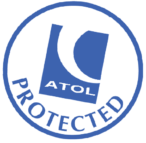Capital: Skopje
Time zone: GMT +1 (GMT + 2 during the summer)
Telephone services: Country Code: 389
Outgoing Code: 99
Emergency telephone numbers: Police – 92, Fire – 93, Ambulance – 94
Tourist information: See Embassy or the Foreign and Commonwealth Travel Advice Unit (020 7270 3000 – switchboard).
Passport information: Valid passport required by all. Requirements may be subject to short-term change. Contact embassy before departure.
Visa information: Visa Required by all except: Nationals of EU countries (except nationals of Greece who do need a visa). Nationals of Argentina, Bolivia, Bulgaria, Chile, Costa Rica, Croatia, Cuba, Czech Republic, Iceland, Hungary, Japan, Liechtenstein, Malaysia, Malta, Monaco, Poland, Romania, Russian Federation (except Uzbekistan), San Marino, Slovenia, Switzerland, Turkey and Yugoslavia (Serbia and Montenegro). Nationals of Algeria, Bangladesh, Bosnia – Herzegovina, Botswana, India, Niger, Pakistan, Philippines, Tunisia, Zambia, and Zimbabwe provided holding prior approval from the ministry of Internal Affairs.
Health information: Other Health Risks: Rabies, Tick-borne encephalitis
Food & drink: Water is untreated and not safe to drink. Take local advice.
Currency: Macedonian Denar = 100 deni Credit cards are accepted on a limited basis, in the capital only. Travellers cheques, preferably in German Deutschmarks or US Dollars, are easily exchanged.
ATM availability: 7 locations.
Cost of living: Macedonia is the poorest of the former Yugoslav republics. Tourists can expect to pay more for goods than the locals.
Languages: Macedonian. Albanian, Turkish, Roma and Serbo – Croat are also used by ethnic groups
Weather: Continental climate with hot summers and very cold winters
Electricity: 220 volts AC, 50 Hz.
Post: 2 – 3 days within Europe, except for Serbia and Greece, with which communications are currently uncertain.
Transport: The situation is subject to change at short notice due to political uncertainty. Contact the Foreign and Commonwealth Travel Advice Unit for up-to-date information. RAIL ROAD: Are currently operating but are crowded and slow moving.
Special information: EXTREME RISK: The British Foreign Office advises against travel at this time. If you intend to travel, despite these warnings you should be aware that apart from safety considerations, accommodation is extremely difficult to obtain. Travellers should be vigilant – avoid travel in the areas close to the border and should not cross into Serbia. Day-to-day business often moves very slowly or not at all, due to the local bureaucracy.

